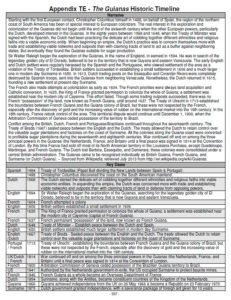Go Lean Commentary
 Brexit is hereby ratified as of today; the new “rules of the road” go into effect tomorrow – January 1, 2021. (Brexit = British Exit from the European Union).
Brexit is hereby ratified as of today; the new “rules of the road” go into effect tomorrow – January 1, 2021. (Brexit = British Exit from the European Union).
It will be a scary time, as the manifestation of Brexit is “Not So Good”.
Britain wanted their freedom to choose – done. See the historicity in the Appendix VIDEO below.
But there is no freedom from the consequences of that choice. See the manifestation of the Brexit Trade and Inter-European relations as defined in this New York Times article here:
Title: Brexit, finalized
More than four years after Britain voted to leave the European Union, new travel and trade rules will go into effect tomorrow, concluding a saga that has divided Britons and dominated British politics.The two sides reached an agreement last week, after nearly a year of trade negotiations. Yesterday, Britain’s Parliament approved the deal. Tomorrow brings the end of free movement of people between Britain and the E.U.
I talked to Mark Landler, The Times’s London bureau chief, about what it all means and what comes next. (Our conversation has been edited for brevity.)
CLAIRE: How will the new relationship between Britain and the E.U. affect people’s everyday lives?
MARK: The purpose of the 1,200-page trade deal between Britain and the E.U. was to avoid very disruptive changes, such as tariffs and quotas. But there will be an array of other bureaucratic requirements that did not exist before Jan. 1.People won’t see a sudden shift in the price of fresh fruit and vegetables in London supermarkets. But it’ll have an impact on Britons who, for example, want to bring their dog on vacation to the continent or who want to get a job somewhere in the E.U.
Trade. Travel. Anything else?
Britain withdrew from the Erasmus exchange program, which allowed British students to study in E.U. countries and vice versa. It’s one highly visible example of things that will change in the post-Brexit era.Something else, which may take a little bit longer to play out, is this idea of separatism and independence. Scotland, for example, was against Brexit, and it could fuel a new push to break off from the rest of Britain.
What will this mean for Britain’s economy?
A lot of stuff still needs to be negotiated. A major driving force of the British economy is the services sector, including legal, financial, consulting and other services. Virtually none of that is covered yet in the trade agreement.How did the pandemic affect the process?
Without it, the negotiations for the trade deal would have been the biggest story in the country. But Brexit was almost completely overshadowed by the coronavirus. Britain is preoccupied with this health crisis, which will muffle the immediate effects of Brexit. But over time those will become more visible. Which means that the debate over Brexit may not be finished in the country.Will this deliver the “global Britain” that pro-Brexit campaigners hoped for?
One of the driving arguments in favor of Brexit was throwing off the shackles of the E.U., so that Britain would become this agile, dynamic, independent economy that could strike deals with everyone in the world. But rising protectionism and populism have made making free-trade agreements harder. The “global Britain” arguments looked more valid in May 2016 than in January 2021. In a way, the Brexit vision is four and a half years too late.Source: Retrieved December 31, 2020 from: https://messaging-custom-newsletters.nytimes.com/template/oakv2?campaign_id=9&emc=edit_nn_20201231&instance_id=25533&nl=the-morning&productCode=NN®i_id=69450329&segment_id=48102&te=1&uri=nyt%3A%2F%2Fnewsletter%2Fa44d74cb-100d-5436-887d-e9c6aa325dbf&user_id=de9db917120d820078919cfacc03d8b3
So according to this foregoing, Brexit was the UK’s quest for agility. 🙁
The words and feelings of a known African proverb is ringing so loud right now; (this was related in a previous Go Lean commentary from July 6, 2016):
“If you want to go fast, go alone. If you want to go far, go together.”
The thing about being agile and nimble is that not everyone in society is fast. Some people are slow … and old, and disabled. Yes, society has a greater responsibility than just getting to a destination quickly, it must ensure that everyone gets “there” … eventually.
This sounds eerily familiar; this sounds like a violation of the Code of Hammurabi; we addressed this in another previous Go Lean commentary from March 22, 2017; see this except here:
[The] Code of Hammurabi was enacted within the Babylonian Empire, a Super Power in the ancient world. … Despite the passage of 3,800 years, there is a lesson to glean from this ancient legal precept for us today. Despite the irrelevance of so many of the 282 statutes, there in the preface of the codified Law is this statement:
“So that the strong should not harm the weak”
Despite how much advances we have made in the millennia since King Hammurabi of Babylon reigned, this concept seems to be void in so many societies; this concept …
- … is not in the Caribbean.
- … is not in the United States.
- … is not in the New World.
There is an obvious “ignorance or negligence of this concept” in the New World. Consider the experience in the United States, where the American DNA seems to be based on a consistent pattern of the “strong abusing the weak” and the long civil rights struggle to overcome the abuse. This is American History and the American Experience. …
A detail analysis of the root causes of Brexit presented that there was a loud minority in the United Kingdom that objected to the freedom of movements of people, goods and capital in the integrated European Union. The British contingent wanted to Exit the regional responsibility of hospitality towards the poor, sick and huddled masses of the European continent. The Brexiters wanted Independence from their neighbors in fulfilling any Social Contract to their citizens.
This is an important consideration for Caribbean stakeholders as we are calling for the same interdependence that the EU enjoy. This desired interdependence is the needed inter-state cooperation that is the only hope for Caribbean member-states to finally reform and transform. Any such cooperation for Britain is now in jeopardy or unlikely. 18 Caribbean member-states are current or former territories of the British Commonwealth. So this Brexit discussion – unitary independence – is relevant for our consideration as it is turning out to be more hype than hope.
The roadmap presented in the 2013 book Go Lean … Caribbean introduces the Caribbean Union Trade Federation (CU), a technocratic federal government – modeled after the EU – to administer and optimize the economic, security, and governing engines of all 30 member Caribbean states – legacies from British, Dutch, French and Spanish imperial expressions. We need the hope of regional interdependence movement, not the hype of nationalistic independence. That previous July 6, 2016 commentary stated:
A philosophical attack on the EU is an attack on the Caribbean’s future. We must be aware … and be on guard.
In truth, the EU has prospered; it has been a win-win for all of its members. It has endured hardships (consider for example, the sovereign debt crisis in Greece) that under previous European regime’s would have resulted in wars; on two occasions, World Wars. Now so much of the rest of the world – especially Africa and the MiddleEast – wants what the EU has. This is why one of the greatest challenges for the EU as a whole and for each individual member-state is immigration. A basic requirement of the economic integration of the EU is the free movement of labor. So anytime, a refugee find their way inside EU borders, they can travel to any member-state. The only way to prevent this free movement is to exit the EU. This is the British decision.
The foregoing New York Times article reported that the UK has started to experience the dreaded economic stagnation that was feared by anti-Brexiters.
 In addition, the issue of disunity remains; the Brexit vote showed that some elements in the United Kingdom are not so “united”. Just two years earlier, a referendum in Scotland to secede from the United Kingdom – and join the EU as a full member including the Eurozone Monetary Union – was narrowly defeated. There may still be a call to renew the quest for Scottish Independence, and maybe even spur a similar campaign for Northern Ireland, thereby eliminating the new Customs border between the Republic of Ireland and the UK country of Northern Ireland. << Photo 2 >>
In addition, the issue of disunity remains; the Brexit vote showed that some elements in the United Kingdom are not so “united”. Just two years earlier, a referendum in Scotland to secede from the United Kingdom – and join the EU as a full member including the Eurozone Monetary Union – was narrowly defeated. There may still be a call to renew the quest for Scottish Independence, and maybe even spur a similar campaign for Northern Ireland, thereby eliminating the new Customs border between the Republic of Ireland and the UK country of Northern Ireland. << Photo 2 >>
The Go Lean roadmap prepared the Caribbean for Agents of Change; one of them is globalization, which produces 2 classes of people: producers and consumers. There is always a Comparative Analysis as to which locale is better suited to procure raw materials and then which locale is best to produce finished goods. Such a Comparative Analysis results in winners and losers from the consideration. The UK’s complaint about the EU was actually a complaint about globalization; the UK was losing out in the Globalization battles and becoming consumers more and more then producing less and less. Those who cling to nationalism tend to be among the losing classes from Globalization battles.
The lesson for the Caribbean Union, if we do not want to lose our own battles, is to be lucky in our Comparative Analysis. Luck is defined as the intersection of preparation and opportunity.
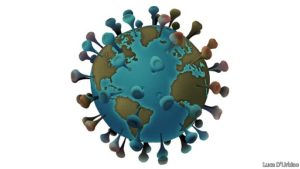 The Coronavirus COVID-19 pandemic has taught the Caribbean the important lesson that we are not prepared for the threats that come from one aspect of Globalization, the free and frequent movement of people across borders and continents. This pandemic started as a flare-up of a contagious respiratory disease in Wuhan, China; then in short order, the infections traversed the planet: to Europe and North America, then onto our Caribbean communities. We were not prepared and suffered accordingly, both medically and economically.
The Coronavirus COVID-19 pandemic has taught the Caribbean the important lesson that we are not prepared for the threats that come from one aspect of Globalization, the free and frequent movement of people across borders and continents. This pandemic started as a flare-up of a contagious respiratory disease in Wuhan, China; then in short order, the infections traversed the planet: to Europe and North America, then onto our Caribbean communities. We were not prepared and suffered accordingly, both medically and economically.
The Go Lean book trumpets that “a crisis is a terrible thing to waste”. In the Caribbean, we want our homeland to be a better place to live, work and play. So we must enable our infrastructure so that we can produce more and consume less. This is the quest of our regional economic empowerments. Then we need to better protect our communities with a robust Security Apparatus to defend across economic crimes, natural disasters and epidemics/pandemics.
This is the lesson we can learn here in the Caribbean homeland from the crisis in the UK and the EU, that we must be prepared for the challenges of globalization in order to get lucky. It just does not happen naturally; the opportunities for profit nor the protection from dangers.
In 2013, the Go Lean book scanned the landscape in the Caribbean and found a lot of deficiencies in the planning, preparations and infrastructure related to the societal engines for economics, security and governance. We too would only be losers in the battles of globalization. So the strategies, tactics and implementations were published that would mitigate and remediate these challenges. These are present in the 370-book, as described below.
In addition, there have been 6 years of continuous blogging on how to apply the strategies, tactics and implementations of the roadmap to better prepare the Caribbean against the pangs of distress from globalization. This theme – empowerments and protections in the battle of globalization – has been frequently detailed in many previous Go Lean blog-commentaries. Consider this sample:
| https://goleancaribbean.com/blog/?p=18834 | A Lesson in History: Free Trade Agreement of the Americas |
| https://goleancaribbean.com/blog/?p=16341 | The Caribbean is ready for a regional Post Office solution |
| https://goleancaribbean.com/blog/?p=16208 | In Defense of Trade – Bilateral Tariffs: No one wins |
| https://goleancaribbean.com/blog/?p=16192 | In Defense of Trade – China Realities |
| https://goleancaribbean.com/blog/?p=15875 | Amazon: ‘What We Should Want To Be When We Grow Up’ |
| https://goleancaribbean.com/blog/?p=11358 | Retail Apocalypse – Preparing for the Inevitable |
| https://goleancaribbean.com/blog/?p=7789 | New Guards for Global Trade |
| https://goleancaribbean.com/blog/?p=7601 | New Guards for Caribbean Sovereign Debt |
| https://goleancaribbean.com/blog/?p=7327 | New Guards for Disease Control |
| https://goleancaribbean.com/blog/?p=6867 | How to address high consumer prices |
| https://goleancaribbean.com/blog/?p=6341 | New Guards for Tourism Stewardship |
| https://goleancaribbean.com/blog/?p=6103 | New Guards Against Deadly Threats |
| https://goleancaribbean.com/blog/?p=5597 | Dire Straits of Labor Unions (Collective Bargaining) during Globalization |
| https://goleancaribbean.com/blog/?p=833 | European Model: One currency, divergent economies |
| https://goleancaribbean.com/blog/?p=242 | Effects of Globalization: The Erosion of the Middle Class |
 The events related to UK, EU and Brexit are important for us in the Caribbean to consider … and learn from. In fact, we are in competition with the European world in terms of trade, and losing. We lose in the movement of people, products and capital as they all move out to these countries … with only a little coming back in.
The events related to UK, EU and Brexit are important for us in the Caribbean to consider … and learn from. In fact, we are in competition with the European world in terms of trade, and losing. We lose in the movement of people, products and capital as they all move out to these countries … with only a little coming back in.
As a region and a society we need to go farther than we have previously accomplished – not necessarily faster – so we need to go together. We need to get united and stay united. We need interdependence, not independence. This is the quest, a Big Hairy Audacious Goal, but still conceivable, believable and achievable.
Everyone in the Caribbean – citizens and institutions alike – are hereby urged to lean-in to this Go Lean roadmap. This is how we can make our homeland a better place to live, work and play. 🙂
About the Book
The book Go Lean…Caribbean serves as a roadmap for the introduction and implementation of the technocratic Caribbean Union Trade Federation (CU), for the elevation of Caribbean society – for all member-states. This CU/Go Lean roadmap has these 3 prime directives:
- Optimization of the economic engines in order to grow the regional economy to $800 Billion & create 2.2 million new jobs.
- Establishment of a security apparatus to ensure public safety and protect the resultant economic engines.
- Improve Caribbean governance to support these engines, including a separation-of-powers between the member-states and CU federal agencies.
The Go Lean book provides 370-pages of turn-by-turn instructions on “how” to adopt new community ethos, plus the strategies, tactics, implementations and advocacies to execute so as to reboot, reform and transform the societal engines of Caribbean society.
Download the free e-Book of Go Lean … Caribbean – now!
Who We Are
The movement behind the Go Lean book – a non-partisan, apolitical, religiously-neutral Community Development Foundation chartered for the purpose of empowering and re-booting economic engines – stresses that reforming and transforming the Caribbean societal engines must be a regional pursuit. This was an early motivation for the roadmap, as pronounced in the opening Declaration of Interdependence (Pages 12):
x. Whereas we are surrounded and allied to nations of larger proportions in land mass, populations, and treasuries, elements in their societies may have ill-intent in their pursuits, at the expense of the safety and security of our citizens. We must therefore appoint “new guards” to ensure our public safety and threats against our society, both domestic and foreign. The Federation must employ the latest advances and best practices … to assuage continuous threats against public safety.
xi. Whereas all men are entitled to the benefits of good governance in a free society, “new guards” must be enacted to dissuade the emergence of incompetence, corruption, nepotism and cronyism at the peril of the people’s best interest. The Federation must guarantee the executions of a social contract between government and the governed.
xiv. Whereas a free market economy can be induced and spurred for continuous progress, the Federation must install the controls to better manage aspects of the economy: jobs, inflation, savings rate, investments and other economic principles. Thereby attracting direct foreign investment because of the stability and vibrancy of our economy.
Sign the petition to lean-in for this roadmap for the Caribbean Union Trade Federation.
—————–
Appendix VIDEO – Brexit explained: Boris Johnson’s new trade deal with the EU – https://youtu.be/mFCKLBsmF_w
Channel 4 News
Posted December 30, 2020 – Brexit is finally over. The UK has finally agreed a trade deal with the European Union – which will start on 1 January, 2021.
But what’s in the deal? And what will change as a result?
(Subscribe: https://bit.ly/C4_News_Subscribe)
The Brexit saga has seen off two British prime ministers – Theresa May and David Cameron. But now Boris Johnson has reached a deal with Ursula von der Leyen, the president of the EU Commission.
After years of debate over the single market, the customs union, tariffs, and the border in Northern Ireland, the two sides have finally found a compromise.
The Brexit referendum in 2016 caused a huge division in UK politics, with MPs split between Leave and Remain. The issue has also divided the Conservative and Labour parties. Some wanted Brexit to be overturned and called for a second referendum. Others said the UK should have a “hard” Brexit, with a more divisive split from Europe.
You can watch our full series of Brexit explainers here: https://www.youtube.com/playlist?list…
——-
Watch more of our explainer series here – https://www.youtube.com/playlist?list…
Get more news at our site – https://www.channel4.com/news/
Follow us: Facebook – https://www.facebook.com/Channel4News/
Twitter – https://twitter.com/Channel4News
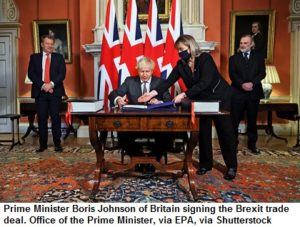

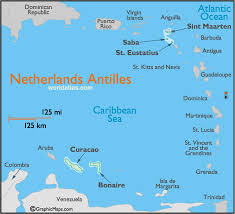 There are Caribbean territories that are actually members of the European Union … kinda. That would be the French Antillean islands (Guadeloupe, Martinique, St. Bartholomew and St. Martin) and the Netherlands Antilles (
There are Caribbean territories that are actually members of the European Union … kinda. That would be the French Antillean islands (Guadeloupe, Martinique, St. Bartholomew and St. Martin) and the Netherlands Antilles (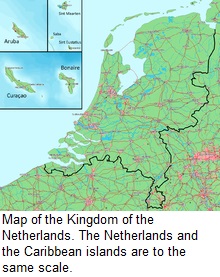
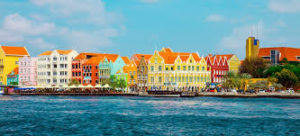


 …
…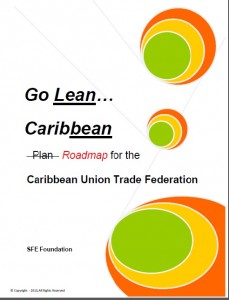
 a political and
a political and 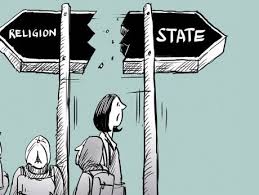

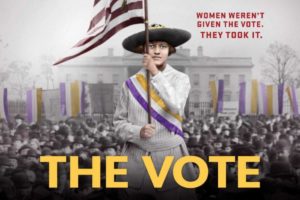 The European Netherlands have always been ahead of us in the Caribbean, but eventually everyone else catches up. Consider the example of universal suffrage: One Man / One Woman / One Vote.
The European Netherlands have always been ahead of us in the Caribbean, but eventually everyone else catches up. Consider the example of universal suffrage: One Man / One Woman / One Vote.
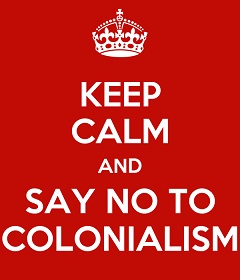

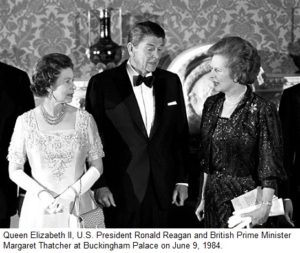
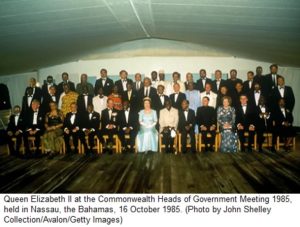 At one point, South Africa said “Enough Already”, as they
At one point, South Africa said “Enough Already”, as they  In
In 
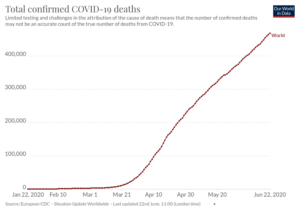
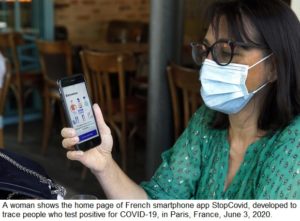 Paris — France has rolled out its “StopCovid” contact tracing app as it continues easing restrictions on normal life aimed at curtailing the
Paris — France has rolled out its “StopCovid” contact tracing app as it continues easing restrictions on normal life aimed at curtailing the  Now that the COVID-19 crisis is imperiling the world in general and Europe in particular, that once proud EU interdependence is now reverting to the dreaded state-only independent thinking and nationalism. Ouch! Be afraid; be very afraid!
Now that the COVID-19 crisis is imperiling the world in general and Europe in particular, that once proud EU interdependence is now reverting to the dreaded state-only independent thinking and nationalism. Ouch! Be afraid; be very afraid!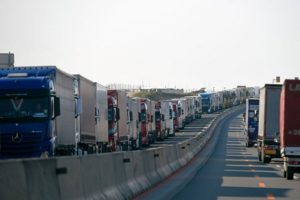
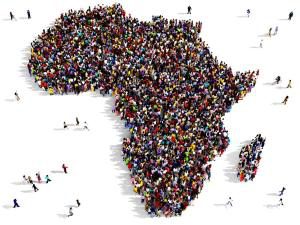 On a deeper reading of the article, I see this as disinformation that Europe has put out into the mainstream to neutralize any effort or bright ideas that Africa and the African Diaspora might have regarding a
On a deeper reading of the article, I see this as disinformation that Europe has put out into the mainstream to neutralize any effort or bright ideas that Africa and the African Diaspora might have regarding a  Face the truth, the “little one” is often invisible and ignored …
Face the truth, the “little one” is often invisible and ignored … “One Accord”, in this case, does not refer to the vehicle from the Japanese Auto Company Honda …
“One Accord”, in this case, does not refer to the vehicle from the Japanese Auto Company Honda …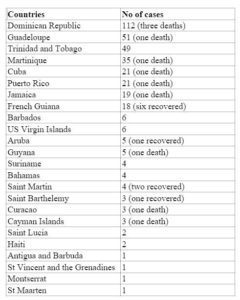
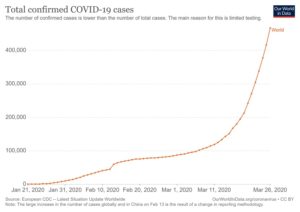 China, South Korea, Iran, Italy have individually engaged in unifying their voice for consistent leadership in this Coronavirus battle. Now, we have many Caribbean nations that have been afflicted – people have died – but we need the rest of the world to respect our policies and decision-making. There need not be any guessing as to whether Caribbean nations are open or closed. We need the full region to “shelter-in-place” everywhere and close our borders. We need to allow this crisis to pass, with minimal contagions, so that we can quickly re-open to a disease free environment.
China, South Korea, Iran, Italy have individually engaged in unifying their voice for consistent leadership in this Coronavirus battle. Now, we have many Caribbean nations that have been afflicted – people have died – but we need the rest of the world to respect our policies and decision-making. There need not be any guessing as to whether Caribbean nations are open or closed. We need the full region to “shelter-in-place” everywhere and close our borders. We need to allow this crisis to pass, with minimal contagions, so that we can quickly re-open to a disease free environment.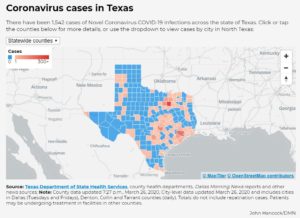
 Dallas County was the first in the state to announce a shelter-in-place order, which went into effect Monday night.
Dallas County was the first in the state to announce a shelter-in-place order, which went into effect Monday night. Change is hard!
Change is hard!
 Culture allows “you” to overcome obstacles; endure the heavy-lifting of a turn-around; invest in future success based on promising talents; stay the course of a roadmap, rather than “giving up” and fleeing for the appearance of greener pastures elsewhere. Culture dictates devoting “blood, sweat and tears” to a community cause, to give a full measure of devotion. We can learn so much by examining organizations and communities of great accomplishments.
Culture allows “you” to overcome obstacles; endure the heavy-lifting of a turn-around; invest in future success based on promising talents; stay the course of a roadmap, rather than “giving up” and fleeing for the appearance of greener pastures elsewhere. Culture dictates devoting “blood, sweat and tears” to a community cause, to give a full measure of devotion. We can learn so much by examining organizations and communities of great accomplishments.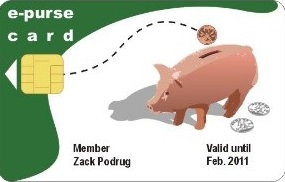 The Caribbean currency also needs attention. For the 30 member-states in the region, there are many different currencies: local dollars (i.e. Bahamas, Barbados, Cayman, Cuba, Dominican Republic, Jamaica and Trinidad), sub-regional dollars (Eastern Caribbean) and International Reserve monies (Euros and US dollars). The attention that the new Caribbean needs is a new currency for its commercial activities, especially e-Commerce.
The Caribbean currency also needs attention. For the 30 member-states in the region, there are many different currencies: local dollars (i.e. Bahamas, Barbados, Cayman, Cuba, Dominican Republic, Jamaica and Trinidad), sub-regional dollars (Eastern Caribbean) and International Reserve monies (Euros and US dollars). The attention that the new Caribbean needs is a new currency for its commercial activities, especially e-Commerce.
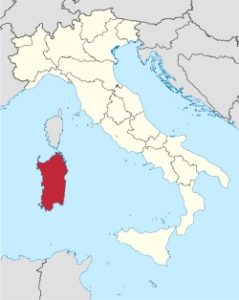

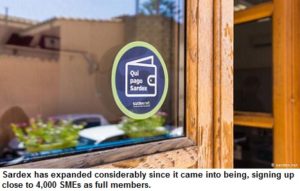
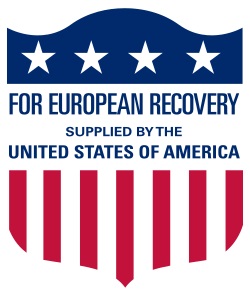 Go Lean Commentary
Go Lean Commentary

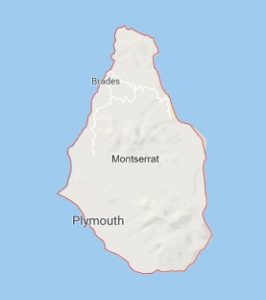
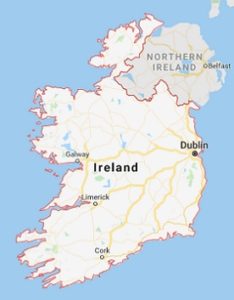

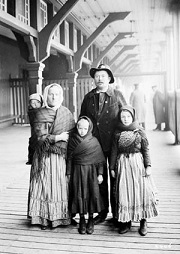 The Irish Luck = Bad Luck? During Ireland’s past, many Irish were forced to emigrate due to the potato famine for instance. Often, abroad, the Irish were treated badly and had to struggle to make a living. Some emigrants didn’t even survive the sea crossing, others grew ill and with no health care, suffered badly. Childhood disease saw many families lose their children, with that their reason for succeeding was not so great and depression followed in many cases by alcohol abuse. Many of the original Irish settlers in the US, the UK and Australia never saw their family again. Indeed on the night before a person emigrated a party was held, a sort of ‘funeral’ wake which is a traditional Irish custom when someone dies. Therefore, some believe that the expression is rather an ironic one, stating that the Irish are not lucky after all.
The Irish Luck = Bad Luck? During Ireland’s past, many Irish were forced to emigrate due to the potato famine for instance. Often, abroad, the Irish were treated badly and had to struggle to make a living. Some emigrants didn’t even survive the sea crossing, others grew ill and with no health care, suffered badly. Childhood disease saw many families lose their children, with that their reason for succeeding was not so great and depression followed in many cases by alcohol abuse. Many of the original Irish settlers in the US, the UK and Australia never saw their family again. Indeed on the night before a person emigrated a party was held, a sort of ‘funeral’ wake which is a traditional Irish custom when someone dies. Therefore, some believe that the expression is rather an ironic one, stating that the Irish are not lucky after all.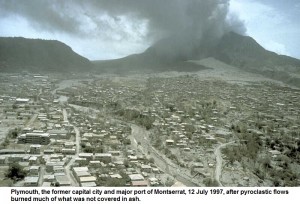 On 18 July 1995, the previously
On 18 July 1995, the previously  Montserrat now has the model by which to follow: regional integration in a
Montserrat now has the model by which to follow: regional integration in a 
 “I like your Christ, I do not like your Christians. Your Christians are so unlike your Christ.” –
“I like your Christ, I do not like your Christians. Your Christians are so unlike your Christ.” –  This commentary continues this 5-part series on European Reckoning. This entry is 4 of 5 in this series from the movement behind the Go Lean book in consideration of the past, present and future of White-Christian European interactions. While this series is on reconciling the European experience, previous submissions addressed European economic leadership. This submission however asserts that the conduct of the Christian-side of White-Christian-European history has been worthy of indictment and the European institutions need to be held to account. Even though the New World and the Caribbean were established by European military power – see Appendix below – the Church was aligned and complicit. The other commentaries in the series are cataloged as follows:
This commentary continues this 5-part series on European Reckoning. This entry is 4 of 5 in this series from the movement behind the Go Lean book in consideration of the past, present and future of White-Christian European interactions. While this series is on reconciling the European experience, previous submissions addressed European economic leadership. This submission however asserts that the conduct of the Christian-side of White-Christian-European history has been worthy of indictment and the European institutions need to be held to account. Even though the New World and the Caribbean were established by European military power – see Appendix below – the Church was aligned and complicit. The other commentaries in the series are cataloged as follows:
 For the Caribbean and the rest of the world, European-based Christian churches have
For the Caribbean and the rest of the world, European-based Christian churches have 